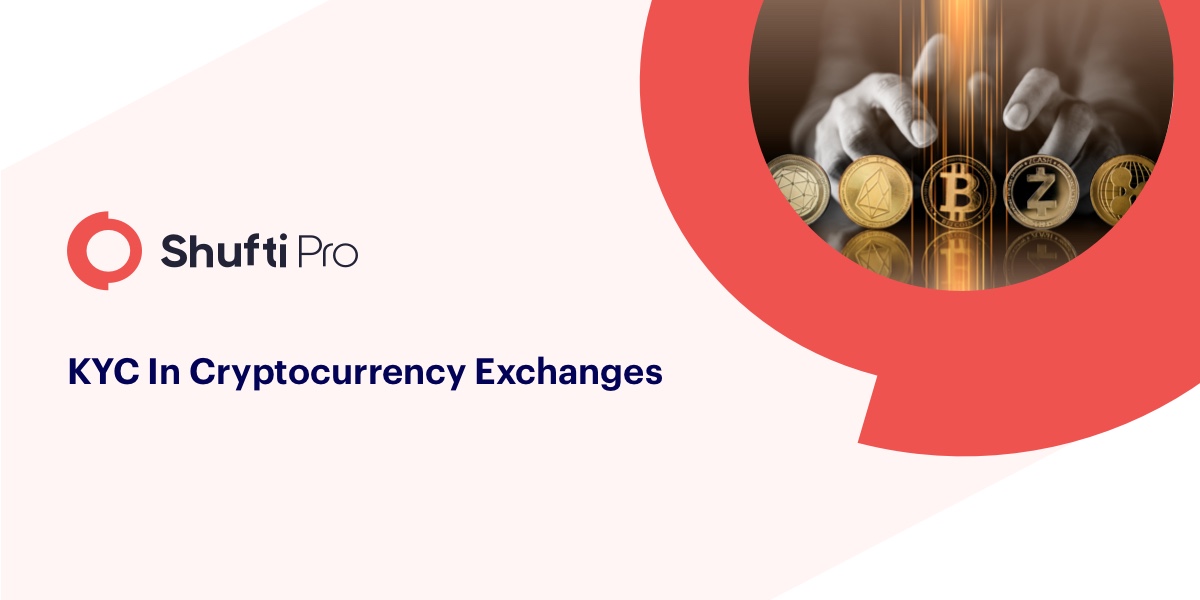KYC in Crypto Exchanges – Hitting the Nail on the Head

A few years back, startups related to ICOs (Initial Coin Offerings) were in full swing, driving the cryptocurrency businesses and making their own set of regulations. However, it is not the same case now. The financial revolution in the form of virtual currency has introduced several challenges that require a standardized structure of rules in place. The regulatory scrutiny and evaluations resulted that anonymity in crypto businesses is the root of diverse financial crimes.
After the analysis of the complex crypto environment and working, regulatory bodies around the world declared that the exchanges promoting decentralized platforms are prone to several threats. The intimidating factors in crypto businesses refer to financial crimes such as money laundering, terrorist financing, crypto gambling, and other criminal activities. The reason is an open invitation for bad actors who enter legitimate systems and perform malevolent activities.
The concern of regulatory authorities is that the crypto exchange businesses lack identity verification measures that facilitate the bad actors in the system. Therefore, due diligence measures such as Know Your Customer (KYC), Anti-money Laundering (AML), and Combatting the Financing of Terrorism (CFT) need to be ensured by crypto businesses. These measures identify the investors before allowing them to engage in the token sale. Therefore, improve the security of the account/wallet in crypto exchanges and discard illicit transactions immediately.
The dawn of KYC in crypto exchanges
In no time, virtual currency exchanges have laid strong foundations globally. The digital assets providers are not regulated accordingly as per the requirements of regulatory bodies. However, the reputable crypto exchange platforms are moving ahead to prepare themselves towards the consideration of regulations that could help them filter out the bad actors that opt to participate. Gemini is a New York-based prime exchange that is fully regulated and always takes into account the regulatory compliance and their obligations. There are some other exchanges such as Coinbase, itBit, Kraken, Liquid, butFlyer, Bitstamp, OKCoin, and many others that require stringent identity verification measures that could facilitate only honest identities through crypto exchanges.
The need for KYC compliance emerged as a result of money laundering and terrorist financing using virtual assets and currencies. The financial regulators noticed that the consumers face financial loss in crypto exchanges and has paved the road for money launderers and other financial criminals to perform illicit transactions across the world without using their real identity. In this way, encapsulating the dirty money gets easy for money launderers in the crypto environment where they are anonymous. Therefore, regulatory scrutiny declares identity verification mandatory for crypto businesses with which investors will be verified beforehand.
The approach of crypto exchanges towards KYC, AML & CFT compliance
The anonymity in cryptocurrency exchanges demands identity verification as well as transaction monitoring throughout the customer lifecycle. Just like all other financial institutions, virtual currency providers need to monitor the ongoing transactions closely to enhance observance in financial systems and immediately take action against suspicious transactions. As in cryptocurrency, transactions are almost untraceable which is a loophole in this system to which most of the fraudsters take advantage. Identifying this, global and local regulatory bodies across the world came up with the regulations that could help reduce financial crimes by allowing only honest identities to participate in the system.
The whole KYC process is divided into the following levels:
- The first is, Customer Acceptance Policy (CAP) in which the exchange determines documents of identity and enlist the detailed related to it.
- In the second level, the Customer Identification Program is conducted in which the Customer Identifiable Information (PII) is collected and identity is verified against it.
- The collected information of the potential customer is then verified as per CAP.
- A risk management approach should be taken in which continuous monitoring of transactions should be done to identify if the system contains suspicious transactions.
Risk management in Fiat-to-crypto and crypto-to-crypto exchanges
For identity verification, the collected information is examined and verified. The information refers to the personal details of investor who opts to invest in crypto business. The identity authentication is performed that covers the KYC as well as AML procedures. In the whole process, details are identified and AML screening is performed against updated global watchlists, sanction lists, and Politically Exposed Persons (PEPs) records. These are risk assessment practices whose compliance is important for crypto businesses to deter the risk of fraud in the system.
Crypto exchanges are divided into two main groups; fiat-to-crypto exchanges and crypto-to-crypto exchanges. In fiat-to-crypto exchanges, fiat money enters the market of cryptocurrency. These exchanges allow investors to exchange fiat currency such as dollars for the bitcoins, ether, libra or some other supported cryptocurrency. Whereas, in crypto-to-crypto exchanges, one cryptocurrency is exchanged with another one. In both these types of crypto exchanges, due diligence needs to be ensured to make sure no entity is using the crypto platform a medium to launder money, finance the act of terrorism, perform gambling or any other criminal activity.
Crypto regulations are going to stay
Financial services providers including cryptocurrency exchanges are vigilant with respect to financial services they provide to the customers by ensuring a secure platform. Regulating crypto assets is under the agendas of crypto businesses. Crypto investors have faced substantial monetary loss as a result of exchange scams and hacks that ultimately plague the crypto market. With the plan of preventing the future crypto investors from loss, regulators across the world have declared KYC, AML and CFT regulations mandatory for virtual currency providers. For instance, in AMLD5 (Fifth Anti-money laundering Directive), identity verification in virtual currency businesses has declared mandatory to combat the actions of money laundering and terrorist financing.
Now before the next regulatory evaluation, crypto businesses have to come up with KYC identity verification strategies to ensure accountability and transparency in the digital currency system. Any discrepancy with respect to non-compliance can result in harsh fines and penalties by regulators.
Recommended for you:

 Explore Now
Explore Now













